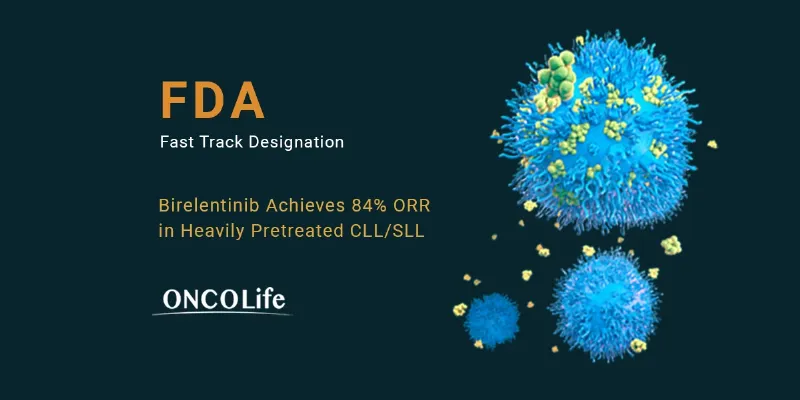FDA Grants Fast Track Designation to Birelentinib for Relapsed/Refractory CLL and SLL

9 August 2025
Birelentinib has received FDA Fast Track Designation for relapsed/refractory chronic lymphocytic leukemia (CLL) or small lymphocytic lymphoma (SLL) after ≥2 prior therapies. In pooled phase I/II data, the agent achieved an 84.2% objective response rate, including in patients with BTK resistance mutations, and an estimated 9-month response durability of 83.3%, with a favorable safety profile.
Dizal announced that the U.S. Food and Drug Administration (FDA) has granted Fast Track Designation to birelentinib (DZD8586), a first-in-class LYN/BTK dual inhibitor, for the treatment of adults with relapsed or refractory CLL or SLL who have received at least two prior lines of therapy, including both a Bruton’s tyrosine kinase (BTK) inhibitor and a BCL-2 inhibitor.
The designation—aimed at expediting the development of therapies for serious conditions with unmet medical need—was supported by data from a pooled analysis of two phase I/II studies in heavily pretreated CLL/SLL patients.
Results presented at the 2025 EHA, ASCO, and ICML meetings showed an objective response rate (ORR) of 84.2%, with responses observed across diverse treatment histories and resistance profiles, including patients harboring BTK C481X and other kinase-dead mutations. The 9-month duration of response rate was estimated at 83.3%, and the safety profile was favorable.
Tackling Dual Resistance Pathways
Treatment resistance in CLL/SLL remains a significant clinical challenge. Patients previously treated with BTK or BCL-2 inhibitors often relapse through two primary mechanisms: BTK C481X mutations and BTK-independent activation of the B-cell receptor (BCR) signaling pathway. Currently, no approved targeted therapy addresses both pathways.
Birelentinib is designed to inhibit both BTK and LYN while maintaining high selectivity against other TEC family kinases (TEC, ITK, TXK, BMX). This dual inhibition disrupts both BTK-dependent and BTK-independent BCR signaling, potentially overcoming resistance. Preclinical studies have demonstrated full blood–brain barrier penetration, favorable pharmacokinetics, and complete BCR signaling blockade in B-cell non-Hodgkin lymphoma models.
While BTK degraders have shown early clinical promise, resistance mutations and toxicity concerns may limit their durability. In contrast, birelentinib’s distinct mechanism and tolerability profile position it as a novel option for patients with advanced disease.
Next Steps in Development
"The granting of Fast Track Designation underscores the U.S. FDA's recognition of birelentinib's potential to address an unmet medical need in patients with CLL/SLL," said Dr. Xiaolin Zhang, CEO of Dizal. “We look forward to working closely with the FDA to accelerate the global clinical development of birelentinib and bring this treatment option to patients as quickly as possible.”
Fast Track status allows for more frequent FDA interactions and may enable rolling submission, priority review, or accelerated approval if pivotal trial results meet the required criteria.
About CLL and SLL
CLL and SLL are indolent yet incurable B-cell malignancies that often relapse despite advances in targeted therapy. Resistance mechanisms, particularly those affecting BTK and the BCR pathway, remain major barriers to long-term disease control, making novel agents like birelentinib critical to evolving treatment paradigms.











Comments
No Comments Yet!